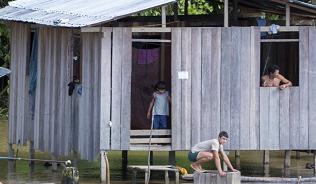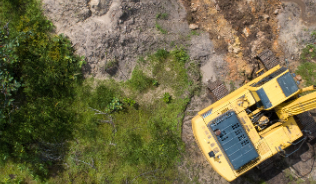The research is clear: there has never been a more urgent time to come together to drive work on creating a sustainable ocean which meets the needs of people and planet. The UN Ocean Decade, running from 2021 to 2030 calls for ‘the science we need for the ocean we want’ through a shared, global effort that builds on decades of achievements in ocean science. Key to achieving this aim is collaboration by stakeholders at all levels, and by looking at the multitude of issues through a systems thinking lens to see how we can find the best leverage points to bring about the urgent changes needed. It is with this in mind that we’re launching a new project which aims to bring together the Marine and Coastal Science community in the UK. As a leading voice for environmental science and the promotion of interdisciplinary working and systems thinking, we’re seeking to equip the marine and coastal community with connections, knowledge and guidance to advance work towards achieving a sustainable ocean through facilitating shared interactions across topical issues.
Turning the Tide: systems thinking for a sustainable ocean
This year-long project, 'Turning the Tide: Systems thinking for a sustainable ocean', will champion a systems thinking approach to issues affecting the marine and coastal environment. We aim to bring together the marine and coastal science community in the UK through a series of collaborative events and activities including online webinars and forums, article publication and workshop delivery. Working with our members, other individuals and organisations from across the sector, we aim to shape the discussions over the next year towards finding a unified voice for the UK’s Marine and Coastal Science community on achieving a sustainable ocean. The year will culminate in the publication of a report on the key findings of the discussions.
Collaboration will be at the heart of this project, and we are seeking organisations and individuals to contribute. We have planned our themes and topics using a systems thinking approach, aligning them with the UN Ocean Decade's key challenge areas, along with other key topics of interest within the sector:
January – March 2023
- Bridging the gap between land and sea
- Land use and ocean impacts
- Examining the land–sea interface
- Ocean literacy
April – June 2023
- Blue carbon
- Climate change and the ocean
- Climate adaptation and protecting biodiversity
- Carbon credits in the marine environment
July – September 2023
- Blue economy
- Deep-sea mining and 'green' technology
- Marine net gain and offshore developments
- Unlocking the sustainable blue economy
October - December 2023
- Marine conservation and restoration
- Out to sea – Marine Protected Areas in the deep ocean and connecting MPAs
- Marine pollution
- Observing, monitoring and restoring marine ecosystems
How can I get involved?
We have a Marine & Coastal Science Community group for members involved in this sector who will help to shape our activities on this project throughout the year. The Community is free to join and open to all professional members of the IES. Find out more here and please get in touch to join.
If you are interested in staying up to date with the project or collaborating with us on activities, we've put together a dedicated mailing list which you can sign up to here.



